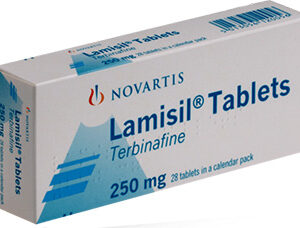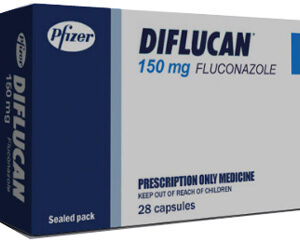Diflucan Medication Overview
Diflucan, whose generic name is fluconazole, is a prescription antifungal medication belonging to a class of drugs known as triazole antifungals. It is used for treating and preventing certain yeast and fungal infections.
Pharmacological Action of Diflucan
Diflucan works by inhibiting the synthesis of ergosterol, a critical component of fungal cell membranes. This disruption leads to increased membrane permeability and ultimately, the death of the fungal cell.
Indications for Diflucan Use
Diflucan is indicated for the treatment of various forms of candidiasis including oropharyngeal, esophageal, and vaginal candidiasis. It’s also used to treat cryptococcal meningitis and to prevent fungal infections in individuals with weakened immune systems, such as those undergoing chemotherapy or with HIV/AIDS.
Diflucan Dosage and Administration
Doses are highly patient-specific and depend on the condition being treated. For vaginal candidiasis, typically a single oral dose of 150 mg is used. For other infections such as systemic candidiasis or cryptococcal meningitis, the dose may start at 400 mg on the first day followed by 200 mg daily, with the duration and dose adjustments being based on clinical response and patient factors.
Diflucan Available Formulations
Diflucan is available in various forms including tablets, oral suspension, and injectable solution. Strengths of tablets range from 50 mg to 200 mg. The oral suspension is available in a 10 mg/mL or 40 mg/mL concentration. The injectable solution is usually available in strengths such as 2 mg/mL for intravenous administration.
Specific Populations and Diflucan
Dosage adjustment may be necessary in individuals with renal impairment, as fluconazole is predominantly excreted in the urine. For patients with hepatic impairment, careful monitoring of liver function is advised during Diflucan therapy.
Suitable Administration Routes
Diflucan can be administered orally or by intravenous infusion. Oral administration can be with or without food. Intravenous Diflucan should be administered at a rate not exceeding 200 mg per hour given as a continuous infusion.
Potential Drug Interactions
Diflucan can interact with a variety of medications. It may increase the serum concentration of drugs metabolized by the cytochrome P450 enzyme system, including warfarin, certain antiepileptic drugs, and oral hypoglycemic agents. Co-administration with other drugs that prolong the QT interval should be approached with caution.
Storage Conditions for Diflucan
Diflucan should be stored at room temperature away from light and moisture. Do not store in the bathroom. Keep all medications away from children and pets.
Monitoring Parameters
Patient monitoring should include renal and hepatic function tests, especially in those with pre-existing conditions and those taking prolonged courses of the medication. Periodic monitoring of blood counts and electrolytes is advised due to the possibility of adverse reactions.
Common Side Effects
The most common side effects of Diflucan include headache, nausea, abdominal pain, diarrhea, dizziness, and taste perversion. Many of these effects may diminish over time as the body adjusts to the medication.
Rare Adverse Reactions
Rare but more serious adverse reactions include hepatotoxicity, QT prolongation, Stevens-Johnson syndrome, and anaphylaxis. Patients must be informed about the signs and symptoms of these reactions and advised to seek immediate medical attention if they occur.
Use in Pregnancy and Breastfeeding
Diflucan should be used during pregnancy only if the potential benefit justifies the potential risk to the fetus. Fluconazole can pass into breast milk, so discretion is advised when administering Diflucan to nursing mothers.
Overdose Management
In case of Diflucan overdose, symptomatic treatment with supportive care and gastric lavage if necessary is recommended. Fluconazole is largely excreted in urine; forced diuresis may increase the rate of elimination.
Missed Dose Protocol
If a dose of Diflucan is missed, it should be taken as soon as possible. However, if it is near the time for the next dose, the missed dose should be skipped, and the regular dosing schedule should resume. Do not double up the dose to catch up.
Brand Names and Manufacturers
Diflucan is marketed under various brand names globally and is manufactured by Pfizer Inc. However, it is also widely available as a generic drug, fluconazole, produced by several other pharmaceutical companies.





Reviews
There are no reviews yet.